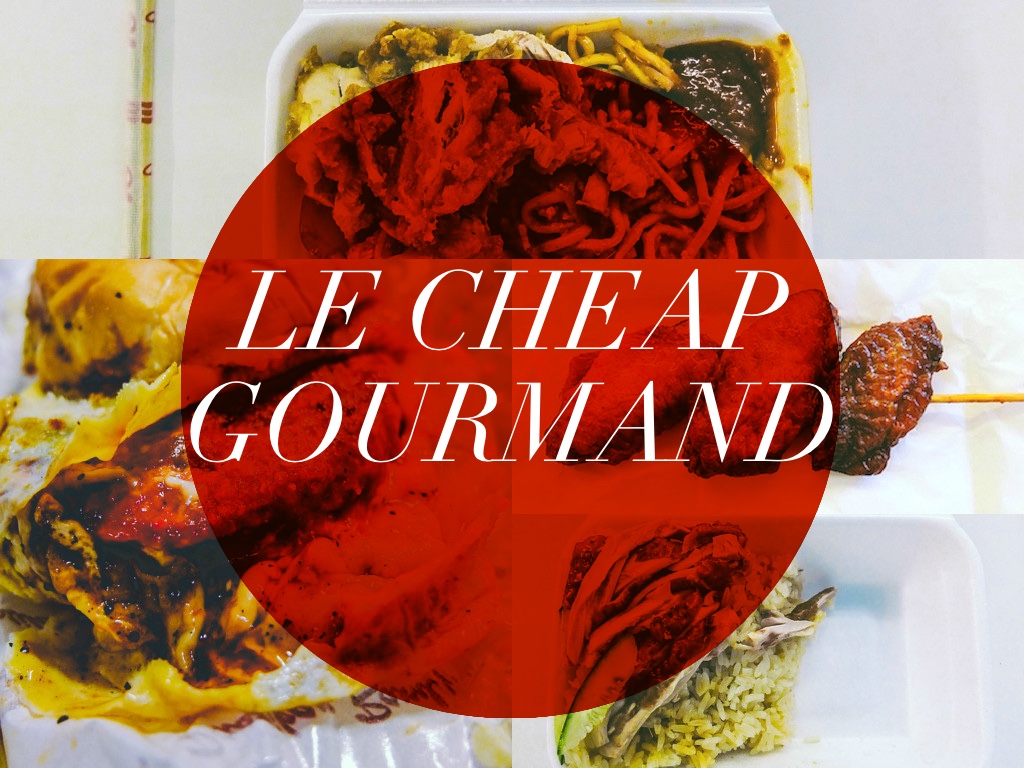Evolution, according to Charles Robert Darwin, is the change in the hereditary traits of biological populations over successive generations, observed even in the most microscopic of organisms.
The palate of the hoi polloi has evolved over the years, and as such, long-held cultural bastions such as pasar malams have had to expand their tendrils of compressed gastronomy to survive. We studied and ventured into a conventional pasar malam during our last jaunt (and oh, what a treat that was!) but some of you have pointed out that my cognoscenti sonars turn towards the eastern provinces of Geylang, where a bulwark of synthesised street fare awaits.
Maybe it was the tepid air, or maybe it was standing in the presence of the majestic multifariousness of edible marvels that caused me to drip with ebullient sweat into my crisp aubergine madras shirt when I arrived at the Ramadan Bazaar.
‘Twas the promised land.
Taking the concept of pasar malam into a nearly cosmic volume, this annual carnival both subjugates and satiates all manner of finicky tastes, taking you through an international expedition of cuisine — from Turkish kebabs to Thai iced teas; from Spanish churros to Singaporean NEWater. All the conventional hallmarks of pasar malams were on offer (the queues for Ramly Burgers were especially lengthy) but this bazaar stretched across the whole landscape and offered a lot more culinary heterogeneity than Woodlands.
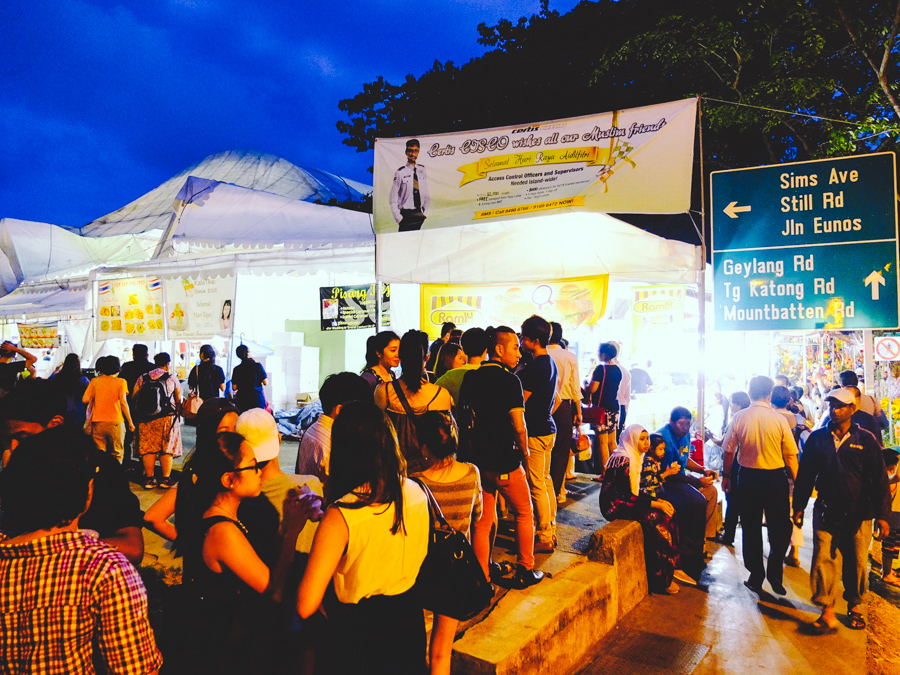
Thus we begin — a light, refreshing appetiser was called for as our foremost sustenance before everything else. There was a row of Thai stalls selling authentic street fare, of which the perfumed scent of fish sauce permeated my pores. Approaching one of the stalls, I attempted to hold a conversation in one of the many Tai-Kadai languages, but I was only acknowledged with a curt “Gila pe budak ni”. Undaunted by our language barrier, I requested their Seafood Glass Noodle Salad ($5).
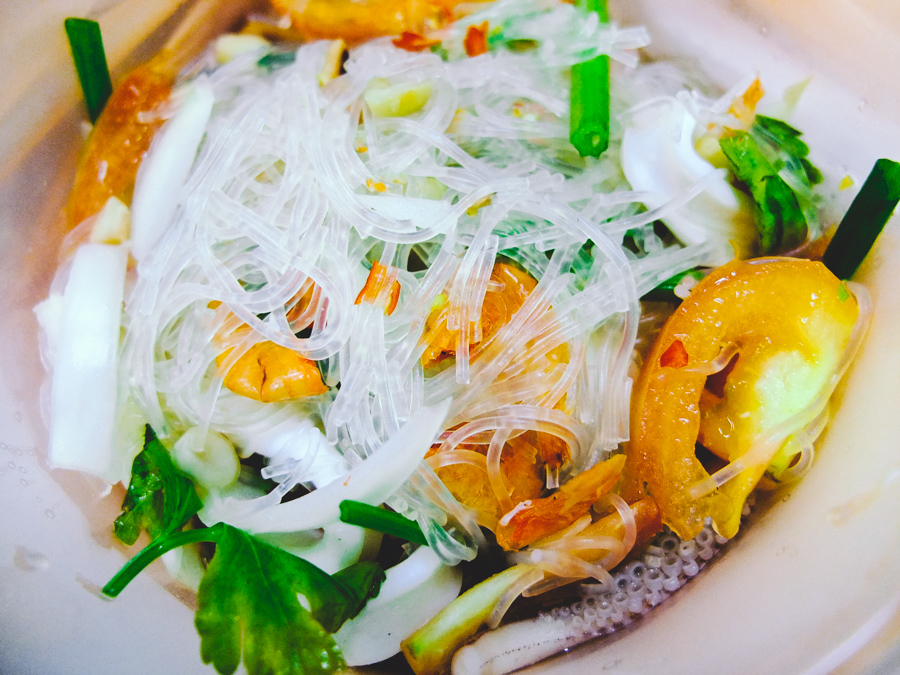
One bite and I’m back in the alleyways of บางขุนนนท์. Rarely is Thai street food done right in this city-state, but this one must take credit for staying true to its standards. Stratums of crisp greens were cradled inside the cosy nest of thick vermicelli, which itself was glossed with aged, oaky lime and fish sauce.
The freshly chopped squid remained pulpy and springy to mastication, while the crunch of roasted peanuts provided a much-needed contrast to the squishy texture of the salad. This farang was extremely contented.
Another starter that tempted me with its moist, maroon-coloured essence was the ever-present beef dendeng ($5 for 100g) — but the very quotation of its price almost made me lose my epicurean appetite. The travesty! The gall! For that amount of currency, I would only be receiving a diminutive quantity of wafer-thin slices of dried jerky.
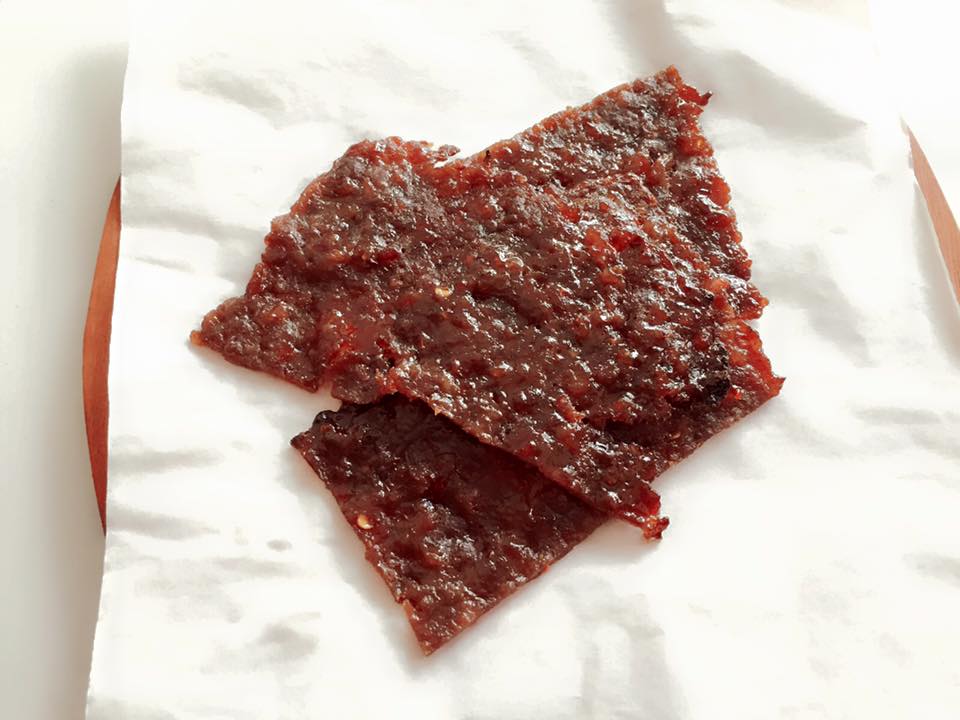
The concept itself went against every known value of Le Cheap Gourmand, which demands affordability on par with quality and quantity. Fuck dendengs and its oligarchic hold on the populist lust for beef jerky. Here’s someone who agrees with my sentiments, and she’ll show how you can make your own for cheap.
Still hankering for some grilled meats, I travelled yonder to the Indonesian stall, which looked comfortable in its own charcoal-flavoured scene. Intrigued, I requested for a sample of their most hotly demanded products, which turned out to be their Pulut Panggang ($2.70) and Pepes Ikan ($2.50).
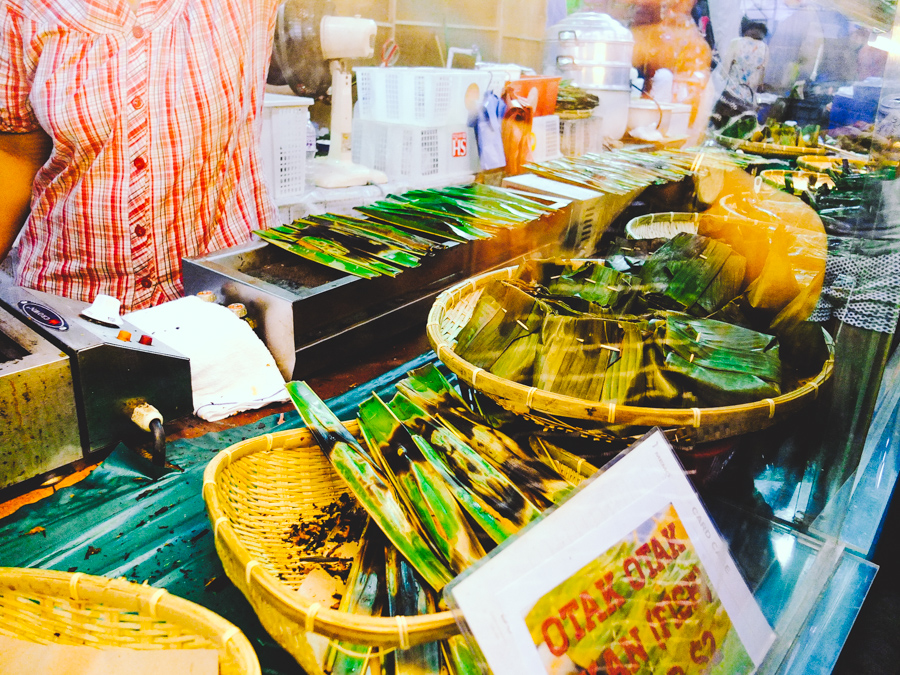
Expecting it to taste similar to its Nyonya cousins, the Indonesian iterations tasted a bit more dapper with a satisfying crunch to its glutinous rice. The dark savoury relishes concealed inside the glutinous rice was polished with a more meatier subconscious, holding a sweet mix of poultry chunks and spiced herbal essences.
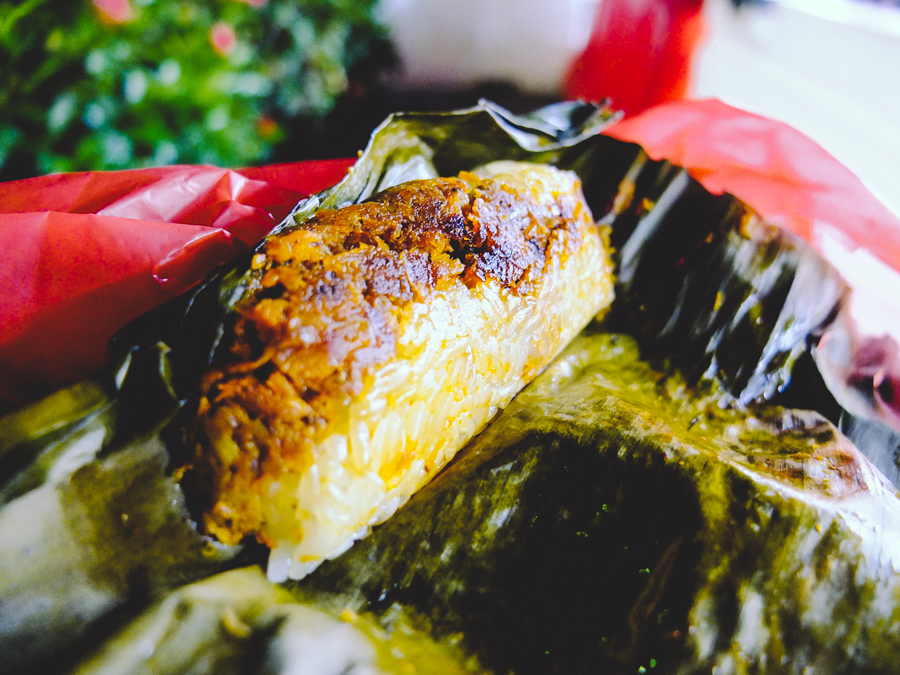
The Pepes Ikan is what you would imagine if otak-otak went through aggressive puberty and grew up into a hulking mass of a steroid-fueled man. Devilishly hearty, bright with flavour and filled with generous chunks of mackerel, it was indeed a testament to the Indonesian spirit, packing serious punch in a minimalist implementation.
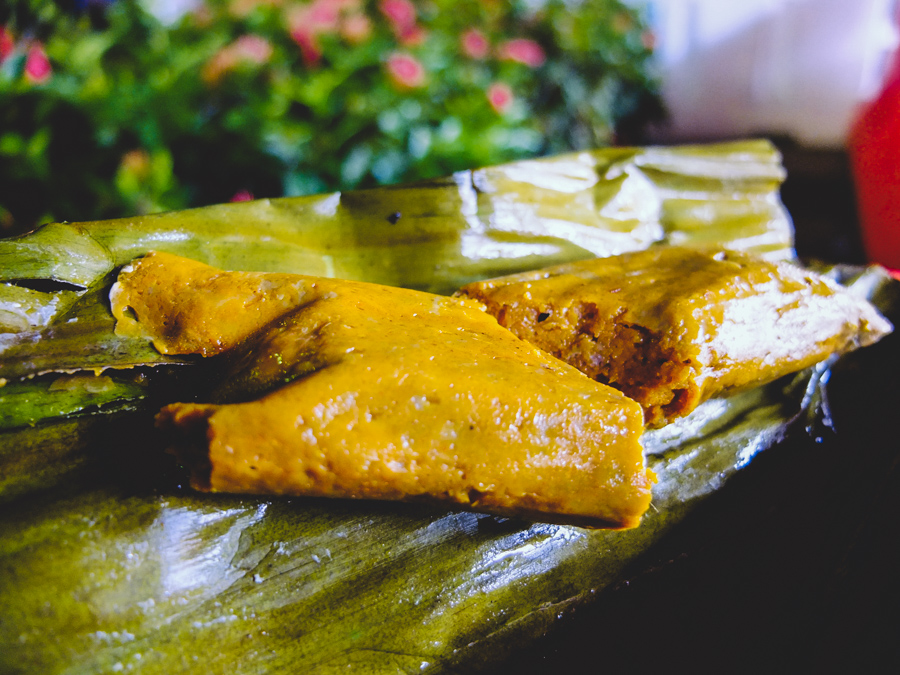
Even the toasted banana leaves that wrapped around its tantalising contents were exquisite, but I was duly informed by an alarmed passerby that you do not actually have to eat the wrappings.
I decided to continue on the theme of seafood as I wandered through the bustling microcosmic metropolis. It was there and then that thine eyes set upon a glorious display of squid-on-sticks , flavoured by both the sweat of its sauciers and the smoky, multi-layered air of the bazaar.
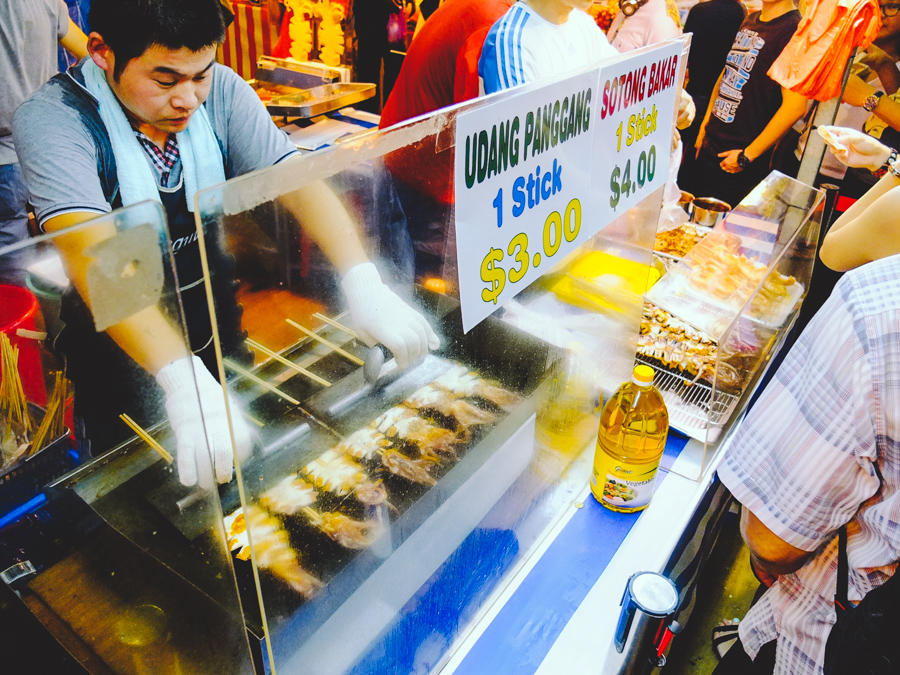
The Sotong Bakar ($4) was actually well-crafted in its agreeability, managing to present a broad spectrum of implicit comforts. Uncomplicated in its execution, the chef simply presses them hard on the hot grill till al dente, before slathering it in rojak sambal. Pleasant enough.
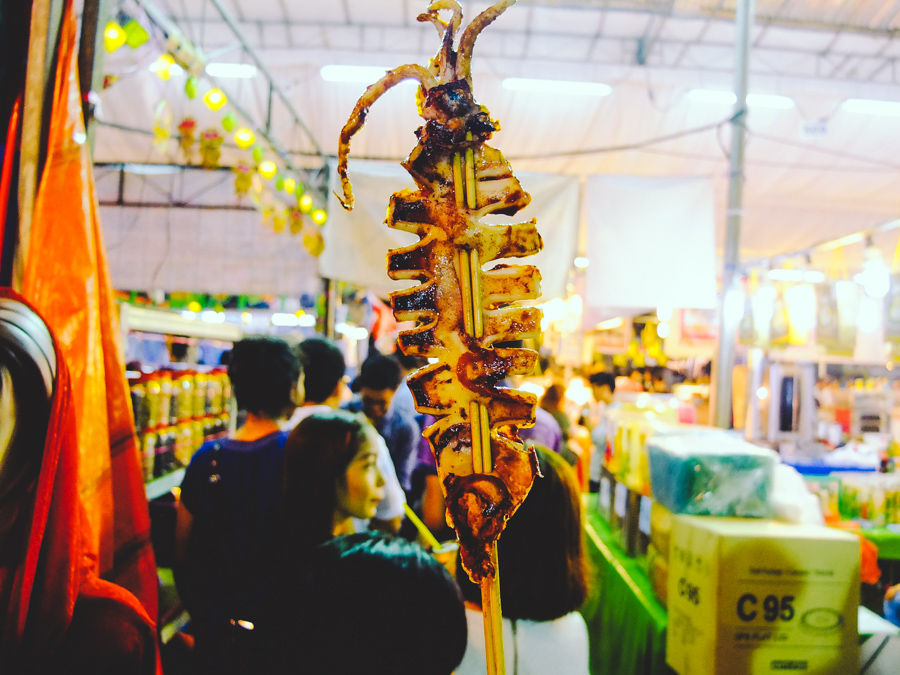
But the belle of the whole fucking ball had to be the Crispy Fried Sotong ($7) which stood on opposing ends of the ethical orbit of the wretchedly-priced dendengs. Where the beef jerkies unfairly charged quite a bit of shillings for a meagre portion, the fried squid-on-sticks were actually priced appropriately despite its relatively high mark-up.
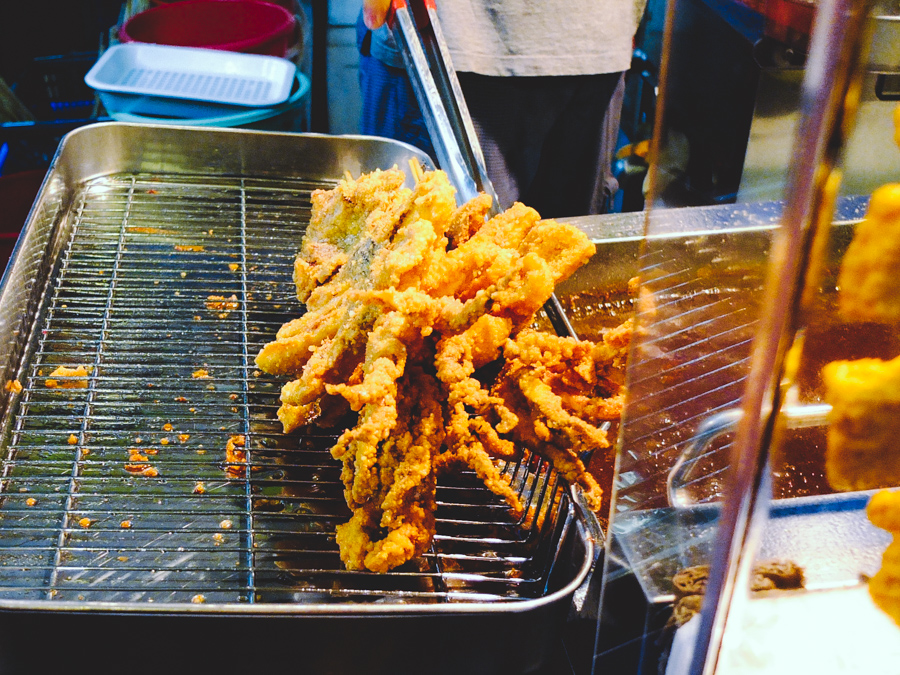
Lovingly battered and breaded in a crisp chaos of spiced seasoning, the fried squid somehow seemed looked and tasted even more monumental than its grilled brethren, and it was more filling too. It was bold, it was provocative, and it deserved every cent of my $7. Truly, the fried squid-on-stick should be a primary right for all citizens of the free world, even if it does look like it’ll wrap around your face and impregnate you.
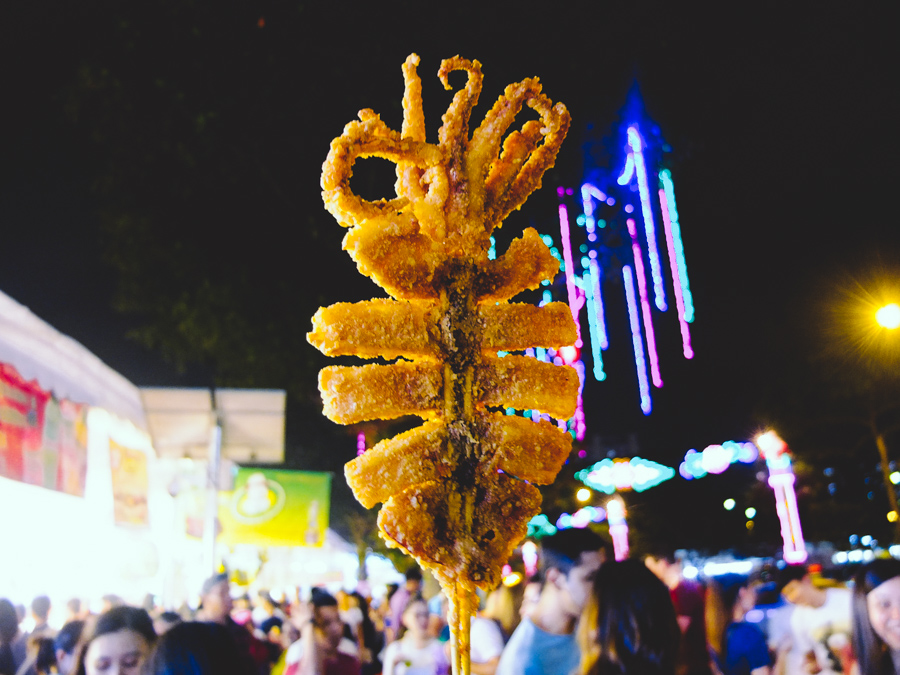
No longer famished, the proletariat meal deserved a similarly humble dessert, and that turned out to be the Thai coconut ice cream ($4). Yet again, the Thais seem to present an instinctive devotion and extolment to this husky fruit. After turning it into jelly at Woodlands’ pasar malam, they turned the fruit into a righteously exquisite final course that can and should be served at any right-minded ristoranté.

The medley of frosty cream and syrup sang a harmonious tenor to the lush coconut flesh, containing an improvised quality as if concocted immediately inside the husk for the street palate. The juxtaposition was further enhanced by the ever-present peanuts, crunchy and saccharine till the end.

What else can be said about this magnificient souk of cultural cuisine? Grand, seemingly endless and certainly a sanctuary for lost connoisseurs, this colossus of a pasar malam knows that it cannot sustain itself for longer than a short period of time without collapsing into its own culinary black hole, and that’s why it only comes around once a year. And for that short period of time, no other night markets come close to the pure might of Geylang Serai’s Ramadan Bazaar.
Photos: Ilyas Sholihyn / Coconuts Singapore
